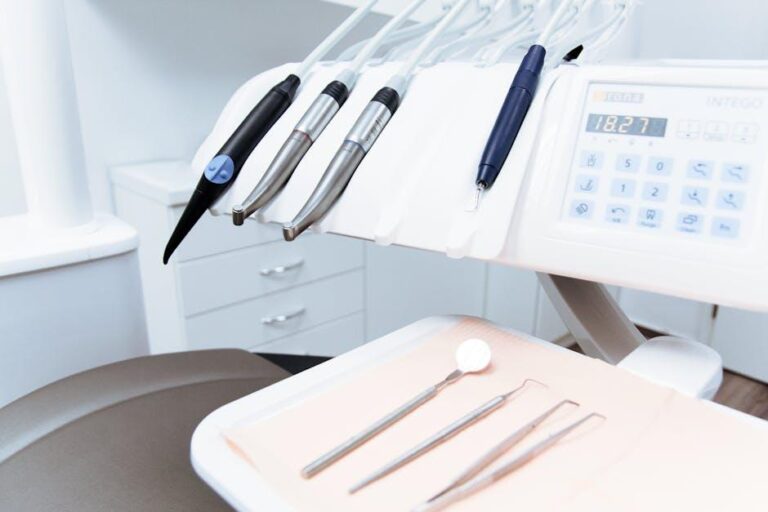
Study Reveals Hidden Dangers at Dentist Office for Tick Bite Allergy – The University of Maryland, Baltimore
Tick bite allergy, medically known as alpha-gal syndrome, is an increasingly recognized condition triggered by a bite from certain tick species, leading to a unique allergic reaction to red meat and related products. While much focus has been on dietary considerations, a groundbreaking study from The University of Maryland, Baltimore highlights unexpected health risks associated with dental care for patients suffering from this allergy. Understanding these hidden dangers is essential for both patients and dental care professionals to ensure safety and comfort during dental procedures.
What is Tick Bite Allergy (Alpha-gal Syndrome)?
Alpha-gal syndrome (AGS) is an allergy to a carbohydrate called galactose-alpha-1,3-galactose (alpha-gal), which is introduced into the human body through tick bites, mainly from the Lone Star tick in the US.
- Symptoms typically include hives, swelling, stomach pain, and in severe cases, anaphylaxis.
- Symptoms often manifest 3-6 hours after consuming red meat or animal-based products that contain alpha-gal.
- Because alpha-gal is a sugar molecule found in mammals, the allergy extends beyond food, impacting other products derived from mammals.
The University of Maryland Study: Linking Tick Bite Allergy to Dental Care
Published in a well-respected medical journal, the study by researchers at the University of Maryland, Baltimore, reveals that certain materials and medications used in dental offices may contain alpha-gal or related compounds, posing hidden risks for AGS patients.
Key Findings
- Dental Materials: Some dental composites, fillers, bone graft materials, or adhesives may be derived from mammalian sources containing alpha-gal.
- Medications and Anesthetics: Local anesthetics and sedation medications sometimes use gelatin or other mammal-derived carriers.
- Latex and Lubricants: Latex gloves and lubricants can occasionally cross-react or exacerbate symptoms in sensitive patients.
- Delayed Reaction Risk: Because AGS reactions are often delayed, patients and providers may not immediately connect allergic symptoms post-treatment with dental care.
Why Are Dental Procedures a Hidden Danger for Tick Bite Allergy Patients?
Dental care is vital for oral health, but the use of animal-based products in dental procedures can inadvertently expose AGS patients to alpha-gal, triggering severe allergic reactions. Here’s why:
- Use of Mammalian-Derived Products: Many dental sealants, bone grafts, and pastes include bovine or porcine derivatives that contain alpha-gal.
- Surprise Exposure: Patients often are unaware these products contain allergens related to their condition.
- Lack of Standard Screening: Dental offices may not regularly inquire about tick bite allergy or alpha-gal sensitivity.
- Emergency Preparedness: Without proper precaution, severe reactions may occur during or after treatment.
Table: Common Dental Materials and Their Potential Alpha-gal Risk
| Material/Medication | Source | Alpha-gal Risk Level |
|---|---|---|
| Bone graft materials | Bovine or porcine origin | High |
| Local anesthetics (gelatin-based) | Mammalian gelatin carriers | Moderate |
| Dental adhesives | Occasionally mammalian derivatives | Low to moderate |
| Latex gloves | Natural rubber (cross-reactivity possible) | Low |
| Sutures | Animal-derived collagen | High |
Practical Tips for Patients with Tick Bite Allergy Visiting the Dentist
To minimize risks during dental care, patients with alpha-gal syndrome should actively communicate with their dental care providers and take precautionary measures:
- Inform Your Dentist: Always disclose your tick bite allergy diagnosis before any procedure.
- Request Alpha-gal Safe Materials: Ask about the products they use and opt for synthetic or non-mammalian alternatives.
- Medication Review: Confirm that anesthetics and sedatives are free from gelatin or animal derivatives.
- Emergency Plan: Ensure that the dental office is prepared for allergic emergencies and that you have your prescribed emergency medication (e.g., epinephrine) handy.
- Schedule Early Appointments: Reactivity can be better managed during office hours when emergency services are fully operational.
Case Study: Real-Life Example of a Tick Bite Allergy Reaction at Dental Office
Emily, a 32-year-old woman diagnosed with alpha-gal syndrome, underwent a routine dental implant procedure. The dentist used bovine bone graft material without prior communication. Hours after the appointment, Emily experienced symptoms of itching, hives, and difficulty breathing, which escalated to anaphylaxis requiring emergency hospital care. This incident prompted her healthcare team to advocate for better awareness within dental practices regarding tick bite allergy risks.
Benefits of Awareness and Proper Protocols in Dental Care
- Enhanced Patient Safety: Prevents allergic reactions and medical emergencies.
- Improved Patient Trust: Knowing their allergy is understood fosters comfort during treatment.
- Broader Medical Knowledge: Helps dental professionals stay informed about emerging allergy concerns.
- Optimized Treatment Outcomes: Alternative materials and medications often produce equally effective or better results.
Conclusion
The University of Maryland, Baltimore’s recent study sheds critical light on the hidden dangers facing patients with tick bite allergy during dental visits. With the rising prevalence of alpha-gal syndrome, it is imperative for dental care providers and patients alike to increase awareness, communicate openly, and implement preventative measures to avoid allergic reactions. If you or someone you know has a known tick bite allergy, proactive dialogue with your dentist and careful planning of your dental care can ensure safety without compromising oral health.
Stay informed, advocate for your health, and work with trusted healthcare professionals to navigate the challenges of alpha-gal syndrome in all facets of care — including at the dentist’s office.


